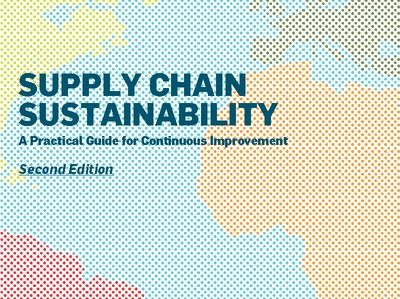Primary Functions
- Further the work of companies in collaborating with their suppliers to deliver tangible and lasting benefits to business, the environment and societies
Detailed Description
Supply chain sustainability is increasingly recognized as a key component of corporate sustainability. In addition to being the right thing to do, managing the social, environmental and economic impacts of supply chains and combating corruption makes good business sense. However, supply chains consist of continuously evolving markets and relationships. To navigate this complex terrain, we offer a few baseline definitions and practical steps that companies can take toward progress, using the United Nations Global Compact principles as the basis to work toward supply chain sustainability.
What is Supply Chain Sustainability?
Supply chain sustainability is the management of environmental, social and economic impacts and the encouragement of good governance practices, throughout the lifecycles of goods and services. The objective of supply chain sustainability is to create, protect and grow long-term environmental, social and economic value for all stakeholders involved in bringing products and services to market. By integrating the UN Global Compact Ten Principles into supply chain relationships, companies can advance corporate sustainability and promote broader sustainable development objectives.
Why is Supply Chain Sustainability important?
Supply chains are the engines for today’s global economy, serving to deliver goods and services around the world, connecting businesses and the individuals who work for them across geographic, industry, cultural and regulatory boundaries.
Supply chain sustainability provides that companies will continue to meet their needs in the future, in economic, social, ethical and environmental terms. It ensures compliance with laws and regulations as well as adherence to and support of international principles for sustainable business conduct. In addition, companies are increasingly taking actions that result in better social, economic and environmental impacts because society expects this and because there are business benefits in doing so.
By managing and seeking to improve environmental, social and economic performance and good governance throughout supply chains, companies act in their own interest, the interests of their stakeholders and the interests of society at large. By implementing supply chain sustainability programmes, companies engage with both direct and sub-tier suppliers, mainstreaming values and actions down to raw material producers and maximizing the overall social, environmental and ethical impact.







